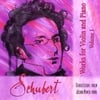Thank Charles Dickens for an opening sentence that rings true for so many situations: "It was the best of times, it was the worst of times..." For me this month has been filled with some really fun and energetic music-making in various places, but there is some bad to balance out the good. It is with a distinct feeling of melancholy and disappointment that I (reluctantly) write the following:
CCM’s yearly offering of a wide variety of enriching music festivals known as CCM Summer Programs has been officially declared cut for good. Summer 2008 will be the last year for these programs that include many internationally and nationally well-known festivals: Opera Lucca, MusicX (the X being whatever year it happens to be, such as Music 2007), the Conducting Workshop, Flute Symposium, and the always popular Grandin Festival. This was a difficult decision made by the current dean, Warren George, in order to make up for CCM’s budget shortfall.
Now it is not my place to pontificate on whether this action is right or wrong, or whether or not UC is doing the right thing by forcing so many colleges in the campus to cut operating budgets by double-digit percentages. Maybe it is, maybe it isn’t. I’ll admit that I am not an impartial observer. But it is certainly not an event to celebrate no matter how one thinks about necessities and practical financial responsibility. While I don’t like to use my blog as a podium of negativity, I want to share some thoughts on the subject. Here’s my point of view as a participant, which might serve to add another layer to the picture:
I came to CCM in 1997 as a doctoral student looking forward to participating in these festivals, especially because students could get high-level (and often paid) performance experience during the penniless off-season months of the summer. It’s probable that the first concert I saw in Cincinnati was at one of these festivals. For many of us graduate students attending CCM, they were more accessible than some of the expensive and long summer festivals such as the Aspen Music Festival. Imagine traveling to Lucca, Italy, on a scholarship that put you in the heart of Tuscany performing operas and songs of Puccini and Mozart. A student enrolled in MusicX could meet composers from all over the country and perform their music, making some money doing new music premieres. You could also earn money playing chamber music in the Grandin Festival, being part of a guinea pig wind band for aspiring conductors in Rodney Winther’s conducting workshop, or accompanying flutists in masterclasses with some of the country’s leading flute performers. There are plenty of other workshops and festivals, too.
I was able to do a lot of these things as a doctoral student. In MusicX from 2000-2002 I got the opportunity to work closely with composers George Crumb, Augusta Read Thomas, and George Rochberg. I gained invaluable experience learning how to play keyboards in large ensembles through the Conducting Workshop (and go figure, most of my performance income now comes from playing in large ensembles).
But I also got the chance to develop another set of skills and gain some practical administration knowledge as an assistant worker with the CCM Summer Programs business office. For the past six years I have been an on-and-off part-timer working with the ever-patient and knowledgeable Joan Van Brocklin in the Summer Programs office. There I learned about spreadsheets, balancing budgets, taking care of travel arrangements for artists, preparing mailing lists and registrations, working with convoluted university account systems (it’s crazy), and all kinds of other administrative duties. All of these things are necessary for any kind of music festival to operate, but many musicians don’t get a chance to look at exactly what the process involves, let alone help out with the work associated with that process. This job gave me an added appreciation for the scaffolding that behind-the-scenes administration is for a festival. Without it, absolutely nothing can take place.
My point is that all of these wide experiences for me (as well as for others) were made possible by CCM Summer Programs, the loss of which may save money but will cost the school, its faculty, and students in non-financial ways. The programs might not be of core importance to the school’s functioning, but it is part of what made CCM a special place of many different types of opportunities for graduate students in music. Unfortunately, it looks like I’ll be among the last beneficiaries of Summer Programs’ varied opportunities.
This wasn’t a happy post to write, but I think a necessary one for me to put up. Perhaps some readers would like to comment or even provide some memorable moments of what it was like to be an observer or participant in these festivals.
Read More......








